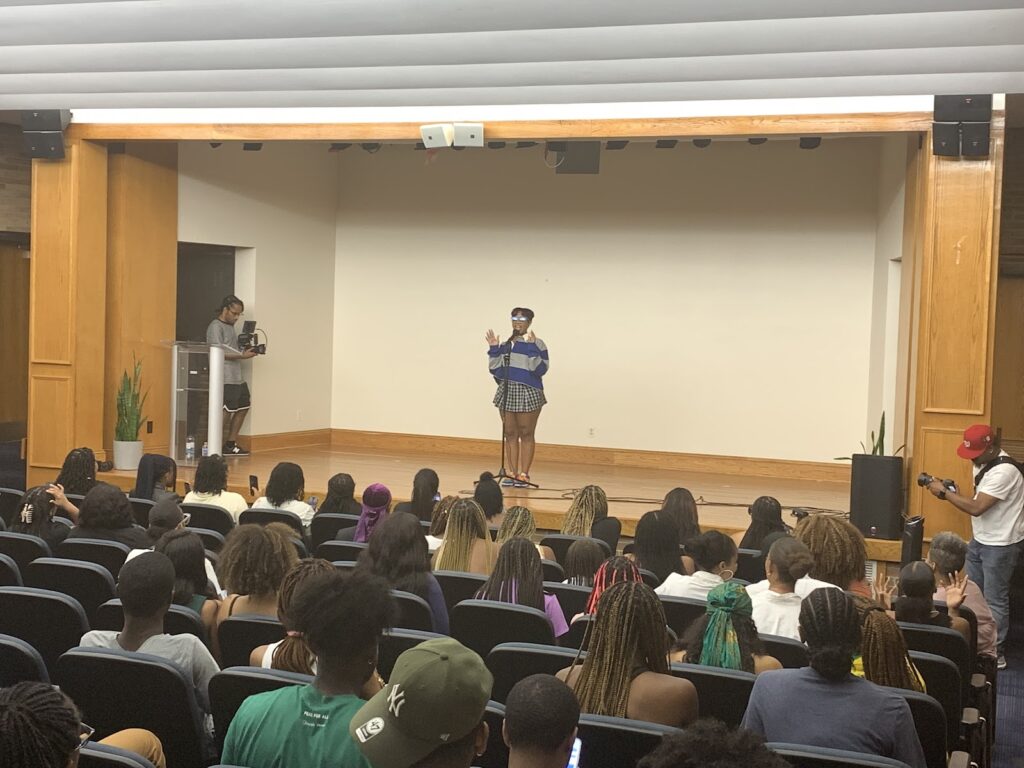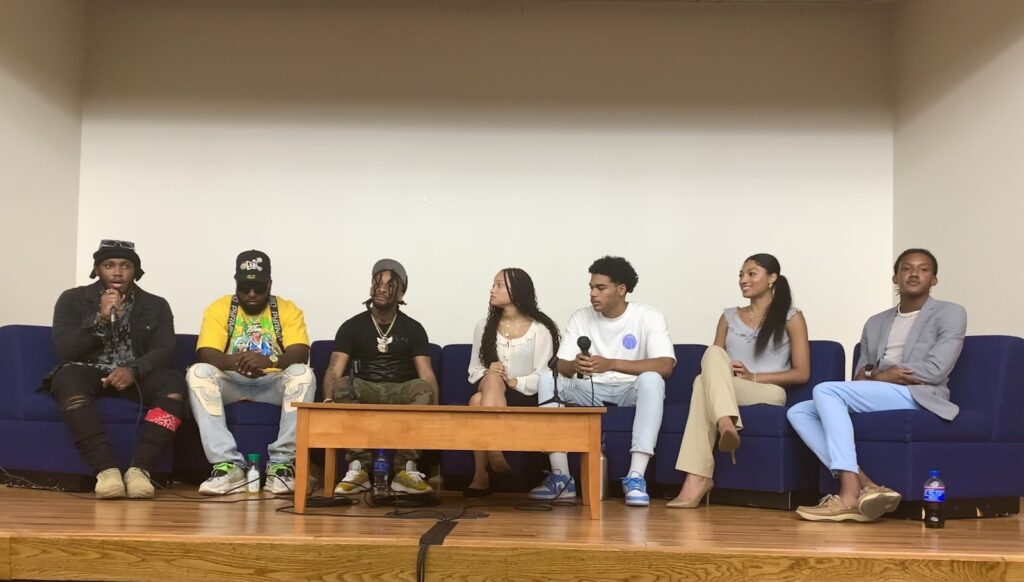
On Wednesday, Aug. 24, music and marketing company Culture Fusion Agency (CFA) held the fifth day of their Welcome Week tour at Howard University. The CFA’s Welcome Week was created to help HBCU students be exposed to and explore the opportunities within the music industry. The day of events was held in the Blackburn Center Auditorium beginning at 12 p.m.
The event hosted by Prophet, Co-founder of Black Music Action Coalition, an organization made to address racism in the music industry, kicked off with a financial literacy panel. While the original guest speaker, rapper Money Man could not be present, the speaker for the following event, Ghazi Shamim was able to stand in. Shami is CEO and founder of record label Empire Records, which has signed names such as late rapper King Von, rapper and singer Bleu, and Nigerian singer Fireboy DML.
They kicked off the financial literacy panel by talking about the power of knowledge and information to gain wealth. Shami spoke a great deal to audience members about growing their brands and offered advice to students about finding themselves more opportunities in the industry.
“One of the biggest things I took away from today is that the greatest investment you can make is in yourself and to make sure that you’re constantly pouring back into you because you can build skill but no one can build your character,” Howard University junior Mariam Kane, who attended both panels of the day, said.
Ghazi and Prophet then transitioned into the Music Industry Panel. Ghazi detailed his journey of creating an empire and having a strong team. Many students asked Ghazi their business and music-related questions, and one student even asked for an ambassador position with Empire Records.
While answering questions, Ghazi took the time to shout out a friend of his, music director and creator of Spotify’s famous playlist RapCaviar Tuma Basa. Basa closed out the final minutes of the music panel by speaking on his work journey and the story behind the famous name RapCaviar.
“Find your way in. Find that one source of connectivity in the industry whether as an assistant or going out and marketing yourself, build on your strengths, and from there doors will open,” Shami said. He finished out the panel by telling students in the audience
“I check my dm’s,” in case some might want to reach out to him.
The day moved on to the Hip-Hop in Politics discussion with students and artists DJ K.Dimes and Baltimore rapper Shordie Shordie. As host, Prophet proposed a question centered around the recent RICO case against Atlanta rappers Young Thug and Gunna.
He asked, “Should rap lyrics be used as evidence in court?”
The question sparked a passionate conversation between panelists. Each panelist and Prophet had the chance to answer the initial question and the difference in opinions made for an interesting conversation. The initial question opened for the discussion on rap lyrics speaking on all types of violence and what classifies that as art as opposed to hate speech.
“I’m a big guy on change so when are we going to change something and how do we?” Shordie said in response to the question. “You’re saying “should the lyrics be used,” but should you even say it?” he asked.
At the end of the discussion, the panelists agreed to disagree on the controversial topic growing in Hip-Hop.

As all three panels wrapped before the final performances of the day, students were able to stick around and reflect on their learnings. “I’m very glad that I came here today, as a psychology major. Not everything pertained to me but I still was able to take lessons from each person I’ve heard from today, and that is a successful day to me,” Howard freshman Ellis Hayes said.
To close out the night, artists such as rapper Karlae and singer Alex Vaughn were in attendance and performed for students at Blackburn Center. The artists drew attention as many students passing by found themselves in the Blackburn auditorium watching, and the crowd began to fill the seats of the auditorium.
The final performer and headliner Moneymarr gave a lively performance to close out the show. Students were able to stick around after all artists performed to grab pictures and speak one on one with the panelists and performers of the day.
Copy edited by Nhandi Long-Shipman

